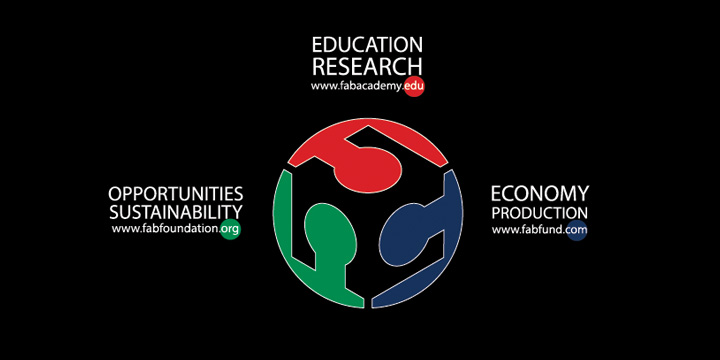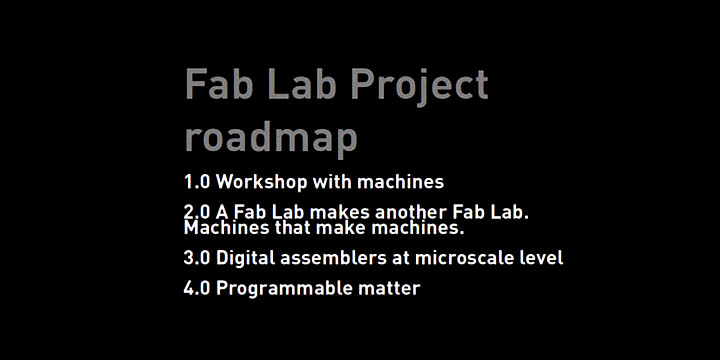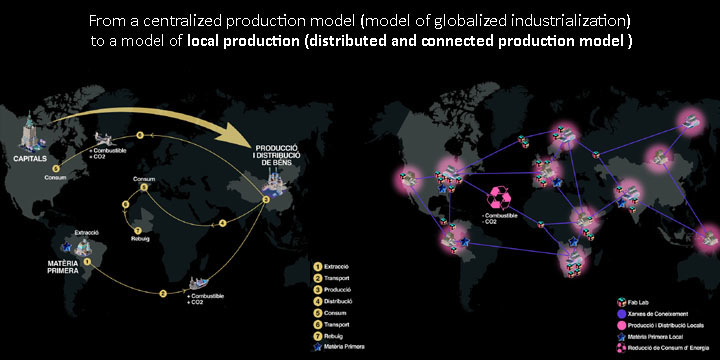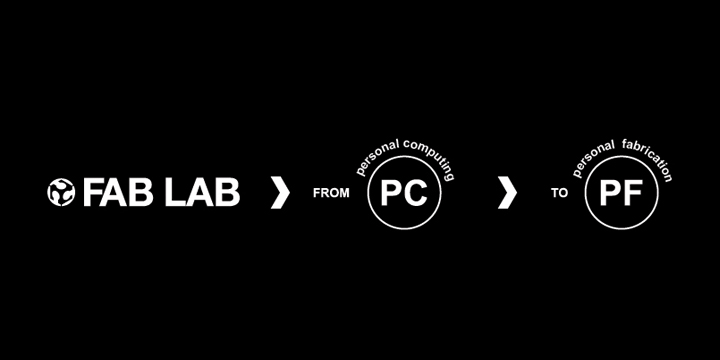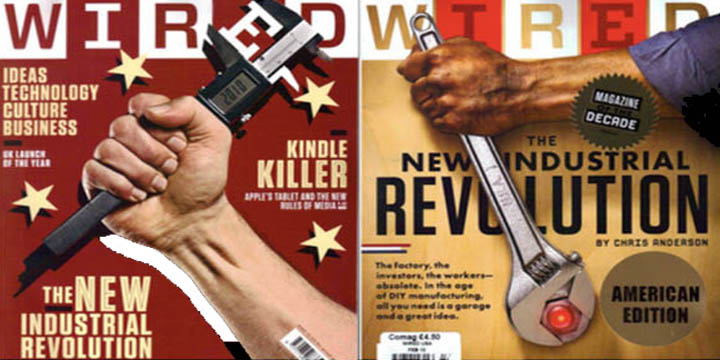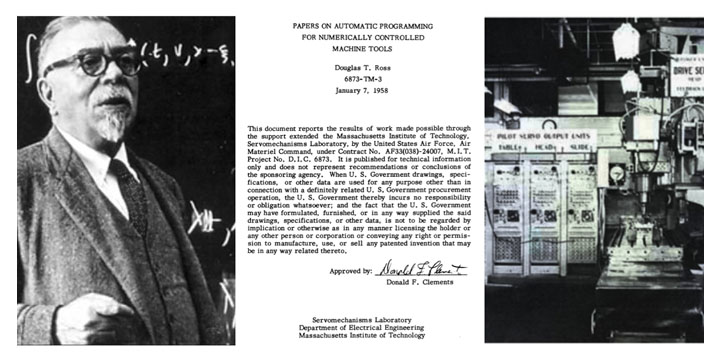
Principles and Practicles

The Fab Academy provides instruction and supervises investigation of mechanisms, applications, and implications of digital fabrication.
Just as communications and computation went from analog to digital, resulting in PCs and the Internet, the digitization of fabrication is leading to personal fabricators that will allow anyone to make almost anything, anywhere. The development of digital fabrication is based on creating codes that don't just describe things, they are things, much as proteins are coded in molecular biology. This research roadmap is ultimately aiming at a Star Trek-style replicator, but prototype versions of these capabilities are already available in field fab labs.
Fab labs began as an outreach project from MIT’s Center for Bits and Atoms (CBA), and spread around the world. The Fab Academy was launched to provide access to advanced instruction for students in these labs exceeding the educational resources locally available to them. It links groups of students and instructors in fab labs, with online video collaboration and lectures by a global faculty. Unlike remote instruction from a central campus, the digital fabrication tools in a fab lab effectively allow the campus to come to the student, for distributed rather than distance education.
The Fab Academy offers Certificates on relevant technical topics, and a Diploma aimed at vocational and technical training for employment and investment (along with assistance to its graduates in those areas).These are accredited by the Fab Academy; it is anticipated that they will by followed by a Bachelor's degree to be offered under applicable regional accreditation, along with post-graduate study.
Fab Academy Certificates provide familiarity with technical options and capabilities, hands-on experience, and direction for further study. Each requires, and is evaluated by, developing and documenting projects. They are periodically renewed to reflect best practices. The Certificates typically require 1-2 weeks. They are combined in the Diploma, which is roughly comparable to completing MIT's rapid-prototyping course "How To Make (almost) Anything". Progress is evaluated by skills and projects rather than time or credits.
Fab Academy Barcelona Class No.1
Introductory Class: Principles ans Practicles
Director: Neil Gershenfeld
Global Team: Tomas Diez(administration; Barcelona), Blair Evans (supply chain; Detroit), Anna Kaziunas France (students; Providence), Sherry Lassiter (finance; Boston), and Alex Schaub (video; Amsterdam). Fab Academy faculty who are leaders in their respective fields provide global video lectures, supervise academic content, and guide research. Hands-on instruction in the labs is provided by instructors who supervise and evaluate Certificates, develop and disseminate instructional material, and assist with projects.
